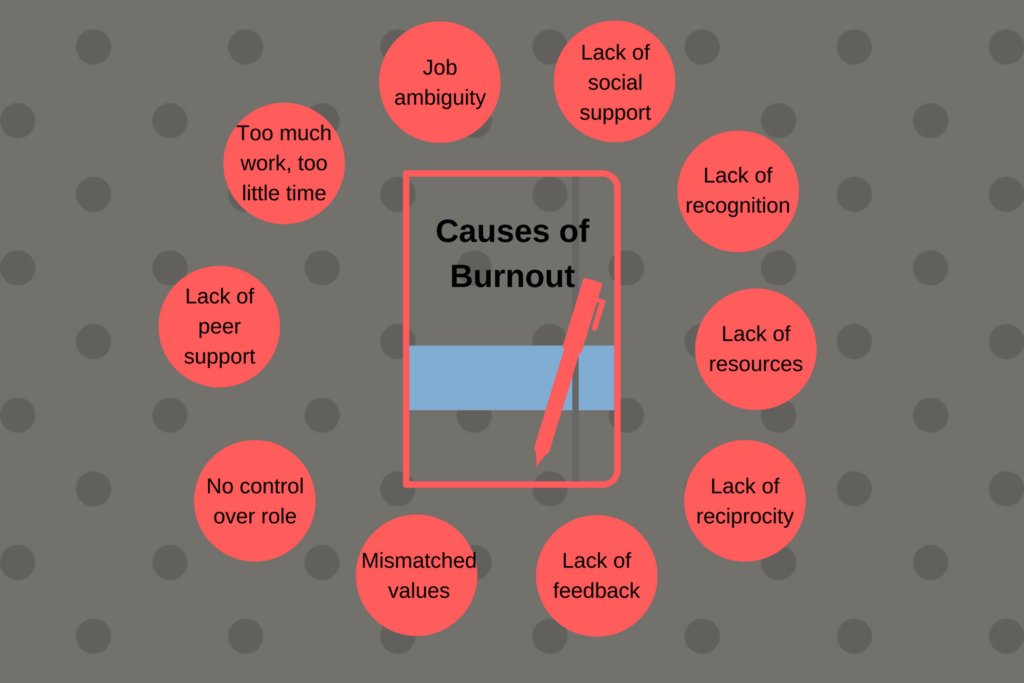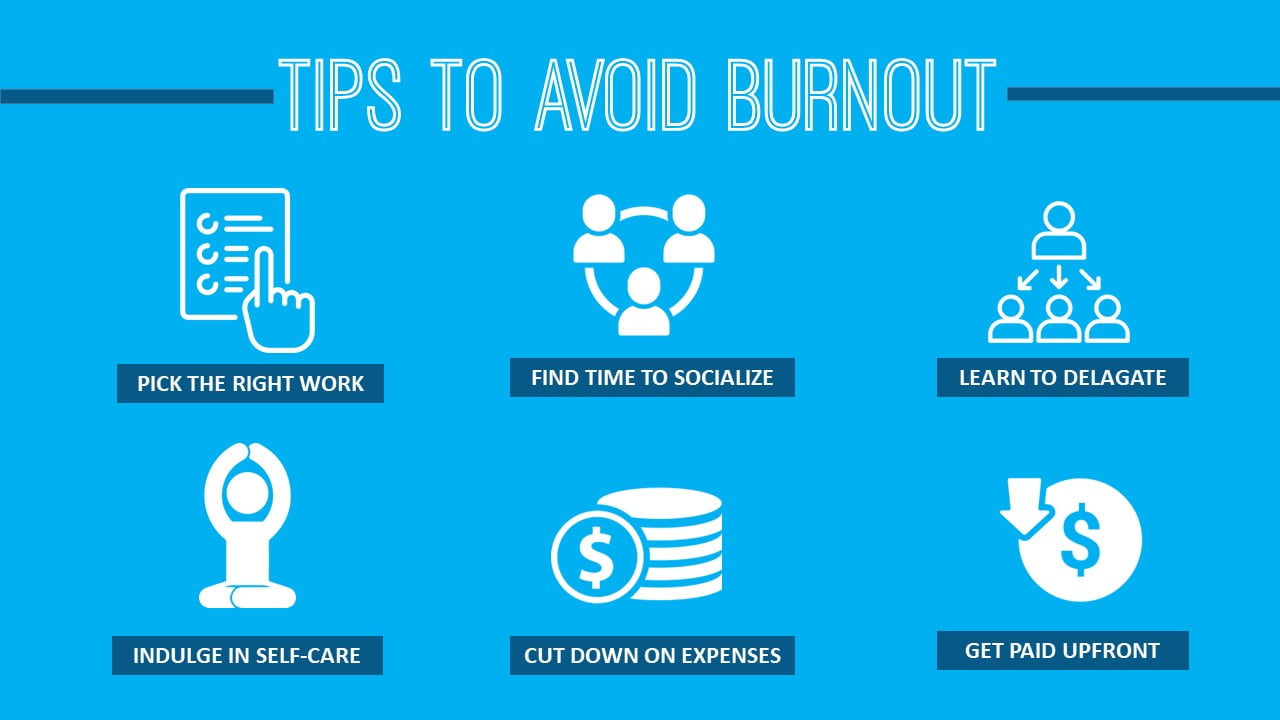You’re busy, you feel like you can’t catch your breath and everyone is counting on you. It’s time for a much-needed break to recharge your batteries and return with renewed energy! But how do we know when it’s time? Some people need more than others for sure. The signs that someone needs a break vary from person to person. In this article, we will explore 11 of the most common signs of burnout that tell us whether it is finally time for a well-deserved rest.
Contents
- 1 What is A Burnout?
- 2 Burnouts: All Questions Answered
- 2.1 How do you know if you’re burned out?
- 2.2 What’s the difference between burnout and stress?
- 2.3 Why do some therapists experience burnout?
- 2.4 What are the signs of burnout? Is there a difference between being burned out and just feeling fatigued?
- 2.5 Why do therapists get burned out?
- 2.6 Are some jobs more likely to cause burnout?
- 2.7 What is the difference between feeling burnt out vs just having fatigue?
- 2.8 Should I quit my job if I’m burned out?
- 2.9 How can I improve my work-life balance?
- 2.10 How can I help a loved one who is burned out?
- 2.11 What should I know before taking a break?
- 2.12 How can I feel less burnt out?
- 2.13 What are some other ways to avoid burnout?
- 3 Conclusion
What is A Burnout?

Burnout is a state of emotional, mental, and physical exhaustion caused by excessive and prolonged stress. It is accompanied by feelings of cynicism and detachment towards one’s job or even the people around you. This can be caused by any work situation that causes an individual to feel underappreciated, underemployed, overwhelmed, unsupported by management, etc.
underemployed, overwhelmed, unsupported by management, etc.
Symptoms of Burnout
The following are some common symptoms of burnout:
- A sense of apathy toward your work
- Feelings of sadness/emptiness
- Lack of motivation for activities that used to bring joy (hobbies)
- Low energy levels; feeling constantly exhausted
- Feeling like there is no end in sight with respect to how much more effort could reasonably be expended on a particular task
- Frequent colds & infections due to a weakened immune system
- Disturbances in sleep patterns (too much or too little)
- Feelings of detachment, isolation, and loneliness
- Increased alcohol/substance use to cope with stress levels
- Increased irritability towards others around you.
- Eating more comfort foods than usual
Causes of A Burnout
Burnout can happen when you don’t feel appreciated, or if you are underemployed, or if you are overwhelmed. It also happens when your boss doesn’t help.
Here are some examples of situations that could lead to burnout:

- Working in a fast-paced environment with high expectations and little support from your manager or coworkers
- Having too much responsibility for which you have no authority or resources
- Being the only team member/supervisor who is working hard while others around you seem unmotivated
- Receiving constant criticism on how things should be done without receiving feedback about what went well at times when it was executed properly
- Understaffing issues it difficult to meet agreed-upon deadlines, leading to constant stress and guilt for not meeting expectations
- Having other responsibilities such as childcare or elderly care that requires time away from the office
- People might not like their job because it doesn’t match what they believe in.
Dealing With Burnout
As the following list of strategies suggests, there are many ways to deal with burnout. But it is important for each person to find out what works best in their situation. Here are some possible coping mechanisms:
- Reach out to family/friends who understand your work environment and can help you through these difficult times.
- Spending time on activities or hobbies that bring joy into your life (e.g., reading, playing sports).
- Seeking professional counseling from someone who understands stress management techniques
- Taking short breaks throughout the day for things like walking around outside or stopping by the café downstairs to get a coffee and chat with co-workers
- Take time off from work to recharge your batteries, relax & engage in activities that bring you joy
- People who have been through a similar situation can help you. They have good ideas to share that could help you too.
Prevention of Burnout

The following tips can help prevent burnout:
- It is good to focus on what is important and not take up more activities than you can handle. Say “no”.
- Set boundaries around how much effort, energy, & resources you will put into any one task
- Think about how much work you are willing to do at one time. If something is too hard or too much work, don’t do it.
- Don’t feel guilty about saying “no”, instead trust that the right opportunities will come up again in the future (if they’re truly worth engaging with).
- You need to take time each day or week to do relaxing things. Spend time exercising, eating healthy food, sleeping enough hours, and spending time with people you like. You should also think about your hobbies. If you have time outside of work, do things like going for a walk, or go to the library. Don’t just stay at home and use your phone.
- Take regular vacations & breaks from work, even if just for a few days. This gives your body and minds the opportunity to recharge following periods of stress or overwhelm.
- Be willing to say “no” when asked by others in order to protect the time you’ve committed for self-care & relaxation; don’t feel guilty about this! Instead, acknowledge that it is important not only for your health but also so you can be present and able to engage with others around you without feeling worn down/burnt out.
What Can You Do To Recover From A Burnout?
- Taking some time off (e.g., sick leave, vacation, unpaid personal day) will likely be necessary at times given how common burnouts are. When burnout occurs, it is critical to prioritize self-care so you can recover and come back stronger than before.
- Stress management and relaxation strategies such as physical exercise, meditation, journaling, or spending time with friends may help you to feel better after a long time of recuperation.
Burnouts: All Questions Answered

How do you know if you’re burned out?
Exhaustion, a feeling of dread about one’s job, and frequent negative emotions such as anger or irritation are all symptoms of burnout. Reduced compassion for those in care may be seen among those working in assisting professions (such as doctors). A sense that you can no longer do your work well might also signal burnout.
What’s the difference between burnout and stress?
Burnout is the result of chronic stress, whereas regular stress may be a normal part of life. When you have no more resources because of too many demands, it is called burnout. If you get overworked, then your health could get worse. Some people are more resilient than others. It is possible to have a lot of social support and it helps you be less stressed.
Why do some therapists experience burnout?
Social workers often face difficult situations. Social workers help children whose parents can’t take care of them. They do this for people who are poor or have a mental illness. Social workers also work with people who have been abused.
What are the signs of burnout? Is there a difference between being burned out and just feeling fatigued?
Burnouts are when you feel bad about your job, and have a lot of negative feelings. You don’t feel sorry for people that need help. You also get tired all the time.
Why do therapists get burned out?
It is hard to work with people from the group who have less money. It may be hard to work with children from a family that has some problems. Other reasons might be that there is not enough time in a session to accomplish what needs to be done; co-worker relationships can cause stress and conflict instead of support; role ambiguity—not knowing if you’re making any difference in your client’s life, etc.; lack of appreciation by others about the value our profession provides.
Are some jobs more likely to cause burnout?
Yes, those who work with clients/patients are more likely to experience burnout than someone working in a non-patient care setting. People who work with people who need help may be at higher risk of getting stressed. They can help others and not be helped themselves.
What is the difference between feeling burnt out vs just having fatigue?
Burnouts happen when you start to not like your job and have more negative feelings. You might also feel less caring for people who need help from a doctor. It can also happen when you are tired, but it’s because of lack of sleep, not getting enough exercise, or eating bad foods.
Should I quit my job if I’m burned out?
No, it is important to remember that burnouts are a result of chronic stress. The best way to stop or manage occupational stress and burnout is through self-care. This includes balancing your work life with other aspects (e.g., family), connecting regularly with others, exercising/being physically active, eating healthy meals on a regular basis—sleeping well can also help by creating an environment that’s perfect for sleep. This means avoiding electronics before bedtime, having a wind-down routine that involves relaxing the body and mind (e.g., meditation), etc. Rather than waiting to go to sleep, you can take control of your thoughts and feelings. You can think about things and not let them just come into your head.
How can I improve my work-life balance?
Work-life balance is about having a life outside of work and it’s important to make sure we find time for ourselves in places like family; friends; hobbies/interests, etc. If you don’t know how to achieve or maintain that balance then ask yourself what do I need? You should spend time with your loved ones. This is good for us and will make relationships better. If you’re at home, watch TV together. Cook dinner together or take a vacation to another place. Spend more time together because this gives meaning to our lives and we need it to be happy in life.
How can I help a loved one who is burned out?
One of the most important things you can do is to make sure they are okay—if there’s any immediate danger call 911. If your loved one is not in a dangerous situation, but just feeling tired or stressed, then you should check upon them. You can do this by asking how their day was and what they would like to do with you. You should help around the house because it shows that you care about being helpful. Also, you should cook dinner once a week, too. Cooking dinner will show your support and will give them energy when they need it.
What should I know before taking a break?
It is important to know that most jobs are not for life. It’s better to have a job than not, but it is good for your mental health if you don’t stay at the same job forever. Taking breaks is a good way to take care of yourself. Sometimes, taking breaks before you get too tired is the best thing for you. During this time, it is important to exercise. You can go for walks or eat healthy food. Also, make sure you sleep enough hours each night (eight) so your body can regenerate cells and make you feel better.
How can I feel less burnt out?
Burnout can be hard because it is not easy to get rid of it. But you must learn how to manage stressors in your life so they do not completely take over you. This means getting exercise, eating healthy foods, and sleeping enough. If you’re still struggling with work, take a week off and tell your boss why.
What are some other ways to avoid burnout?
Here is a list of things that you can do which will help prevent burnouts:
- Take breaks, even just one day per week
- Spend time with your loved ones.
- Find time to talk about things that happened in the week or weekend and spend less time on social media and TV.
- Do activities outside like hiking and biking together and do hobbies like cooking new recipes in the kitchen.
Conclusion
Feeling tired and burned out? We may be able to help. This blog post will cover how we can help you with your stress level while also helping you manage the burnout cycle. Here, we’ll talk about what causes this phenomenon and some steps that might make it easier for you to recover from a time of intense work or emotional struggle (exhaustion). If any of these tips sound helpful, let us know! Our team is always happy to answer questions on our web site’s contact page by phone or email. Let’s get started talking about ways in which burnout can happen so that together, we can figure out what solutions are best for alleviating your situation.
If you are looking for affordable Online Counseling MantraCare can help: Book a trial therapy session


